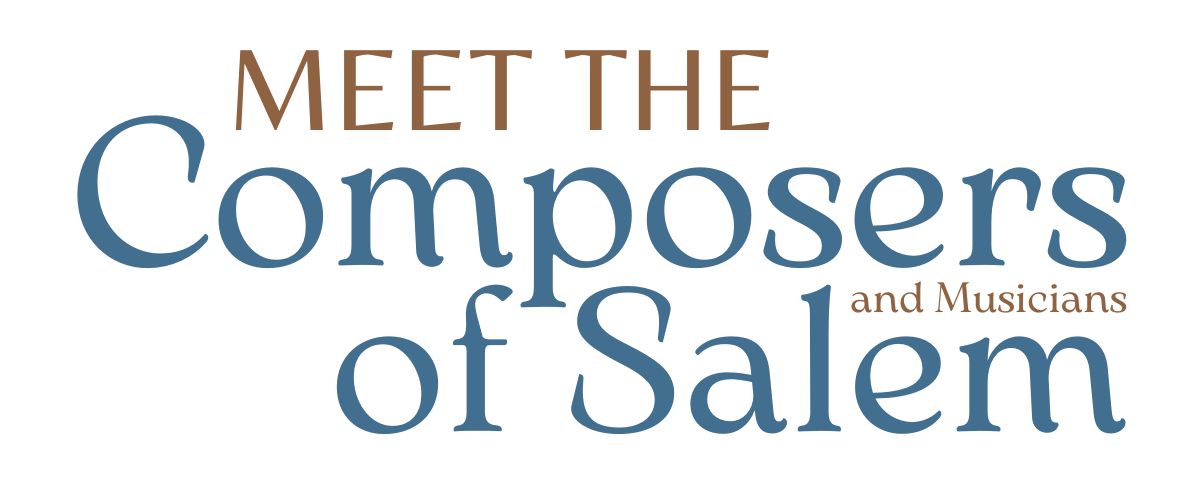
This interactive guide will introduce you to the composers and musicians of Salem, as well as providing a guide map to their grave site. Join us in bringing the music and stories of these composers and musicians back to life!
Quick Find:
About the Composers
Moravian Composers
This list is neither complete nor exhaustive, but includes many of the more prolific and better known composers of the last 300 years. An exhaustive list would also include hymn composers, hymn text writers, and composers of spiritual songs.
The composers of Moravian music throughout history have been primarily people with other vocations. Moravian composers of the 18th and 19th century were also pastors, teachers, and administrators, with responsibilities far beyond composing and directing music. These Moravian composers wrote very few pieces of independent instrumental music, though the Moravians used instrumental music extensively for instruction and enjoyment.
Among the most influential, prolific, and/or enduring Moravian composers were:
- John Antes (1740-1811), Pennsylvania-born instrument maker, missionary, and composer of the earliest known instrumental chamber music by an American born composer;
- Johann Christian Bechler (1874-1857), German minister, one of the first professors at Moravian Theological Seminary, later elected bishop;
- Jeremias Dencke (1725-1795), German organist and composer of the earliest example of Moravian concerted (anthem) church music in America;
- Johann Ludwig Freydt (1748-1807), teacher in Moravian schools, co-worker with Christian Latrobe;
- Johann Christian Geisler (1729-1815), German Moravian minister and member of the Unity Elders Conference;
- Christian Gregor (1723-1801), “The father of Moravian music”, minister, organist, and church administrator and bishop; editor of the German Gesangbuch of 1778 and the Choralbuch of 1784, both highly influential for more than a century;
- Johann Daniel Grimm (1719-1760), musician and teacher of Johann Friedrich Peter; compiler of the 1755 manuscript chorale book of almost 1,000 tunes;
- Francis Florentine Hagen (1815-1907), American Moravian teacher, pastor, and evangelist;
- Johannes Herbst (1735-1812), bookkeeper, teacher, organist, pastor, bishop, headmaster of Moravian girls’ school in Lititz, Pennsylvania, and a prolific composer and copyist of other Moravian composers’ works;
- Christian David Jaeschke (1755-1827), descendant of early Czech (Bohemian) immigrant family, teacher, organist, and copyist;
- Christian Ignatius Latrobe (1758-1836), English Moravian missions administrator, and friend of Franz Joseph Haydn;
- Heinrich Lonas (1838-1903), organist and teacher, editor of a Moravian chorale book used in Germany;
- David Moritz Michael (1751-1827), German Moravian teacher and worker with the single brethren in Nazareth and Bethlehem, leader of Bethlehem Collegium musicum and composer of wind ensemble music and sacred vocal works;
- Johann Friedrich Peter (1746-1813), pastor, teacher, music director, and composer of more than 80 sacred vocal works and 6 string quintets, possibly the earliest chamber music written in America. Born in Holland;
- Simon Peter (1743-1819), brother of J. F. Peter, pastor and church administrator. Born in Holland;
- Johann Christopher Pyrlaeus (1713-1785), first Moravian musician to serve in Native American missions; organizer of first Moravian Indian-language school and translator of many hymns into Mohican language; established Bethlehem Collegium musicum;
- The “Van Vleck sisters,” Amelia Adelaide (1835-1929), Lisette Marie Van Vleck Meinung (1830-1914); Louisa Cornelia (1826-1902), all teachers at Salem Female Academy and composers primarily of well crafted and sophisticated salon music for piano, voices, and guitar;
- Jacob Van Vleck (1751-1831), pastor and inspector of Bethlehem girls’ school, bishop and musician, grandfather of the Van Vleck sisters;
- H. M. H. W. Voullaire (1825-1902), teacher and pastor of several European Moravian congregations, composer in the style of Brahms;
Countless others who served the church through their musical abilities alongside their other vocations, include these and many more:
Christian Ludwig Brau
Theodor Lily Clemens
Ernst Immanuel Erbe
John Gambold Jr
Johann Gottfried Gebhard
Christian Gottfried Geisler
Christian Friedrich Hasse
Edward W. Leinbach
James Montgomery
Georg Gottfried Müller
Abraham Ritter
Johann Christian Till
John Frederick Wolle
Peter Wolle
John Worthington
This list just barely makes it into the 20th century.
Moravian composers today, like their forebears in the faith, are primarily trained musicians who may or may not be employed, but are certainly involved, in church music, music education, or music performance. Many will have non-music or non-church professions and still serve the Moravian Church through music.
Johannes Herbst (1735 – 1812)
Johannes (John) Herbst was born on July 23, 1735, to Lutheran parents in Kempten, Swabia. He was sent to live with his maternal uncle in his seventh year, where he was given special permission from the Church Boards in Herrnhut to attend their school for little boys. There he learned the clock-making trade. He was received into the Moravian Church in 1748. He helped with the music of Herrnhut, playing the organ, for which he showed a special talent, and later served the community as the superintendent of the Brothers’ House and a bookkeeper. In May 1786, Johannes and his wife Rosina bid farewell to their children and set sail for America, where he felt called to be a pastor. He was ordained a Presbyter of the Brethren’s Church on October 15, 1786, and began his service in Lancaster, PA, moving five years later to Lititz, PA, where he became a pastor and preacher. In his spare time before coming to Salem, Herbst composed over 100 anthems and 200 sacred songs. He was a collector and copyist of music as well, compiling a collection of over 1,000 anthems and many larger works. He was consecrated a bishop on May 12, 1811, in Lititz, PA, just two days before leaving on his journey to Salem. He only served the Salem congregation a few months before his death on January 15, 1812.
Music Collection
Click here for a list of Johannes Herbst’s works located at the Moravian Music Foundation and other various libraries.
Lieder zum singen am Clavier composed by Johannes Herbst
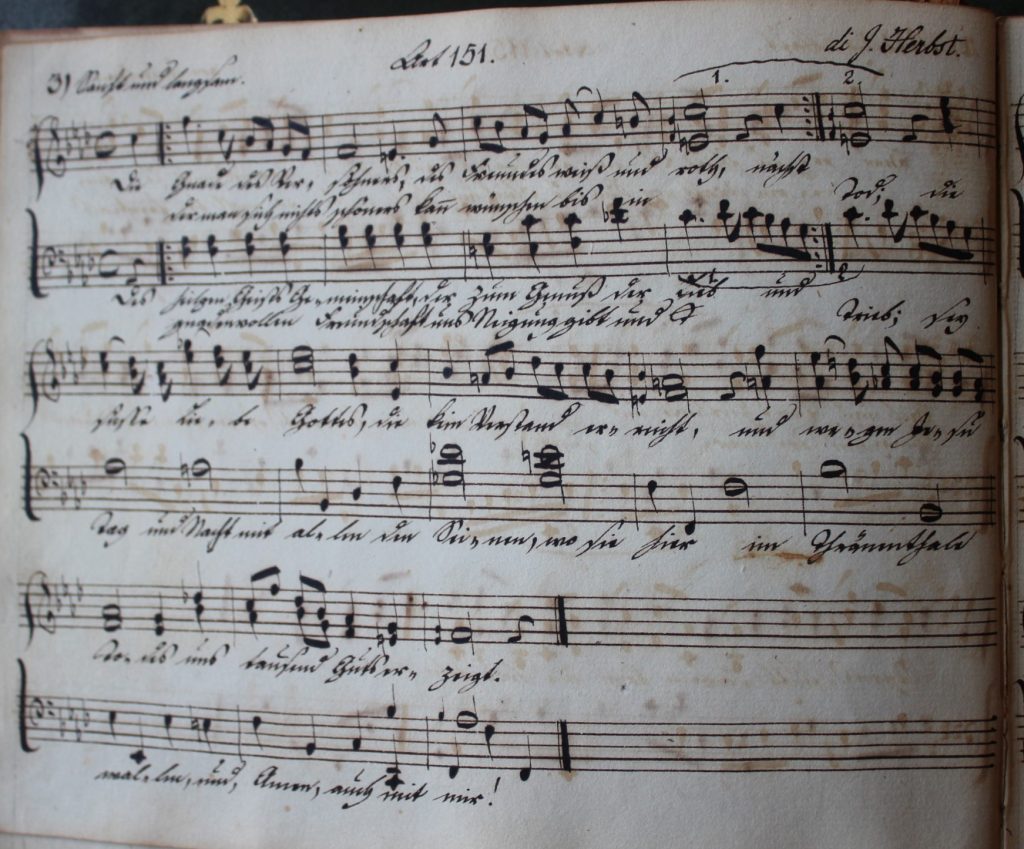
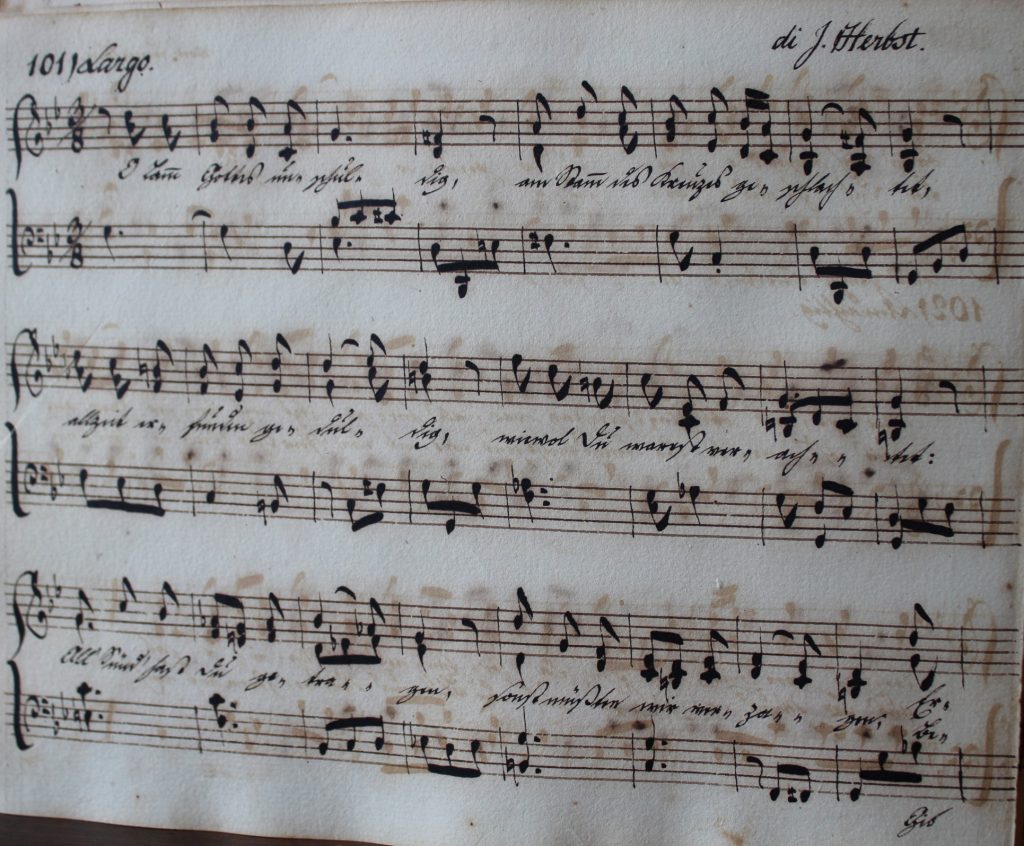
Gravesite
Johannes (John) is buried in the Salem Congregation’s God’s Acre
Square: 01J
Row: 03
Grave: 03
Moravian Music Lecture – Nola’s Notes – the Hymnals of Rt. Rev. Johannes Herbst
Moravian Music Lecture – Nola’s Notes – the Hymnals of Rt. Rev. Johannes Herbst (1735-1812). Nola explores the connections between German and English hymnals in his private collection and what they tell us about him, about history, and about Moravian worship. Included: the 1778 Gesangbuch by Christian Gregor
The Music of Johannes Herbst: A Concert Celebrating The Music of Johannes Herbst
Old Salem Museums and Gardens along with the Moravian Music Foundation present A Concert Celebrating The Music of Johannes Herbst
Johannes Herbst: “Blessed Shalt Thou Be” and “Praise the Lord”
Lititz Moravian Collegium Musicum Concert, October 5, 2019, Evening concert. Lititz Moravian Senior Choir • Dr. Jeffrey S. Gemmell, conductor. Soloists: Katie Grisbacher
Edward William Leinbach (1823 – 1901)
Edward William Leinbach (Leinback) was born on November 4, 1823, to John Henry and Elizabeth Leinbach. He was the eldest of six children. When four years old, his godfather asked him to recite a hymn. Instead of simply reciting it, he sang it nearly perfectly. When instructed on how to improve, he sang it back with exceptional accuracy. Because his talent was noticed, he began organ lessons at an early age. He later received instruction on the piano and cello as well. He worked on music in the evenings while also holding a job as a clerk at the Blum congregation store. As a young man, he taught at the Salem Boys School and many other places in the South. He also worked as a traveling agent for the Fries manufacturing firm. On October 23, 1855, he was married to Anna Elizabeth Clauder while in Canal Dover, Ohio. In 1856, he was invited to become the music instructor at Salem Female Academy in Salem, NC. He remained a teacher there for 25 years and became the organist of the Home Church congregation. He organized the first Brass Band of the Salem Community. In 1850, Edward, alongside Rev. Frances Hagen, formed the Salem Classical Music Society, which later became the Philharmonic. His musical accomplishments made him one of the most influential Moravian musicians of the 19th century. He had to give up his beloved organ post in 1883 owing to his many engagements away from Salem. About seven years before his death, Edward suffered what was called a “brain attack” and slowly his health and mind began to decline. After receiving blessings from his church, Edward passed away on February 18, 1901.
Music Collection
Click here for a list of Edward William Leinbach’s works located at the Moravian Music Foundation and other various libraries.
Click here to see more photos of manuscripts.
Hosanna! composed by Edward William Leinbach
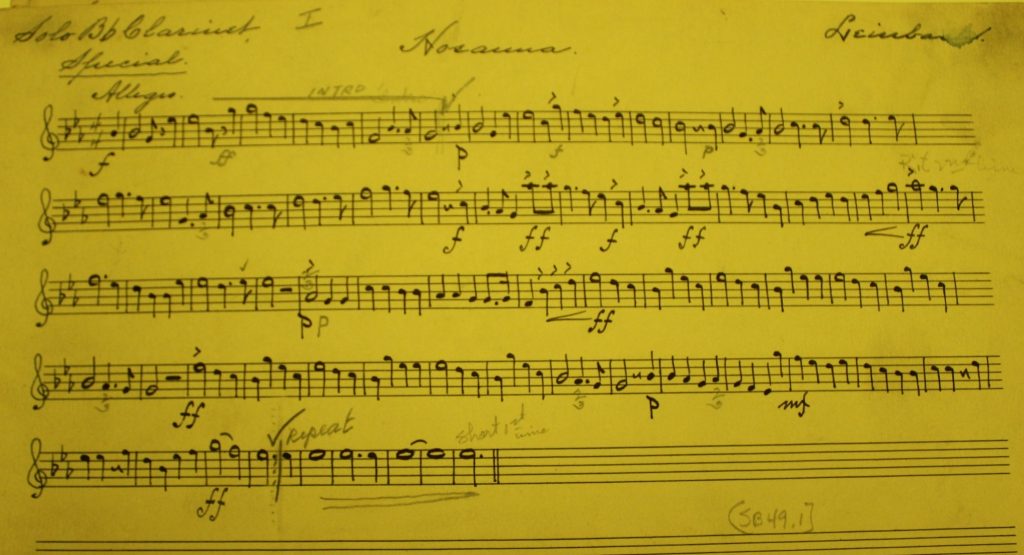
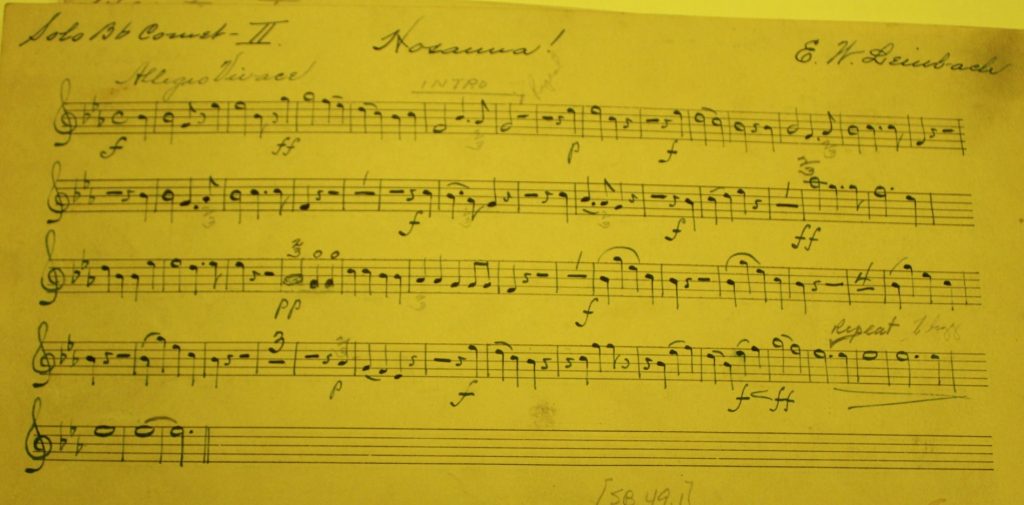
Gravesite
Edward is buried in the Salem Congregation’s God’s Acre
Square: 01N
Row: 06
Grave: 02
Easter Gallop
Easter Gallop ·
Album: American Brass Quintet Brass Band Cheer, Boys, Cheer! Music Of The 26th N.C. Regimental Band, CSA Volume 2 ℗
Performed by: The American Brass Quintet Band
2006 Anthology of Recorded Music, Inc. Released on: 2006-01-01
Capt. Jones’ Waltz
Capt. Jones’s Waltz ·
Album: American Brass Quintet Brass Band Cheer, Boys, Cheer! Music Of The 26th N.C. Regimental Band, CSA Volume 2 ℗
Performed by: The American Brass Quintet Band
2006 Anthology of Recorded Music, Inc. Released on: 2006-01-012006 Anthology of Recorded Music, Inc. Released on: 2006-01-01
Dead March
Dead March
Album: American Brass Quintet Brass Band Cheer, Boys, Cheer! Music Of The 26th N.C. Regimental Band, CSA Volume 2 ℗
Performed by: The American Brass Quintet Band
2006 Anthology of Recorded Music, Inc. Released on: 2006-01-012006 Anthology of Recorded Music, Inc. Released on: 2006-01-01
Lizette Marie Van Vleck Meinung (1830 – 1914)
Lizette (Lisette) Marie Van Vleck Meinung was born on April 13, 1830, to Rev. Carl Anton and Christiana Susan Kramsch Van Vleck. She was known as a precocious child with an uncanny memory and a musical ability to match. She first showcased her talents at age two when she sang a solo at her father’s church. She attended the Moravian Young Ladies’ Seminary, located in Bethlehem, Pennsylvania, for her schooling. Following her father’s death in 1845, Lizette traveled with her mother, sisters, and brother to Salem, North Carolina. She began teaching piano lessons independently at age 16, and at age 22 she took on a music teaching position at Salem’s Female Academy. She would remain in this position until 1868, when she became engaged to Alexander Meinung. Alexander was also a talented musician and their home became a center of music in the community. The Meinungs were credited with giving many of the young people of Salem their first musical instruments. In addition to being a talented instrumentalist and singer, Lizette composed a collection of short works, including waltzes, galops, polkas, and marches. Lizette passed away on September 14, 1914, following a terrible accident in which her clothing caught fire while performing household duties.
Music Collection
Click here for a list of Lizette Marie Van Vleck Meinung’s works located at the Moravian Music Foundation and other various libraries.
Click here to see more manuscript photos.
Annie Schottisch composed by Lizette Van Vleck
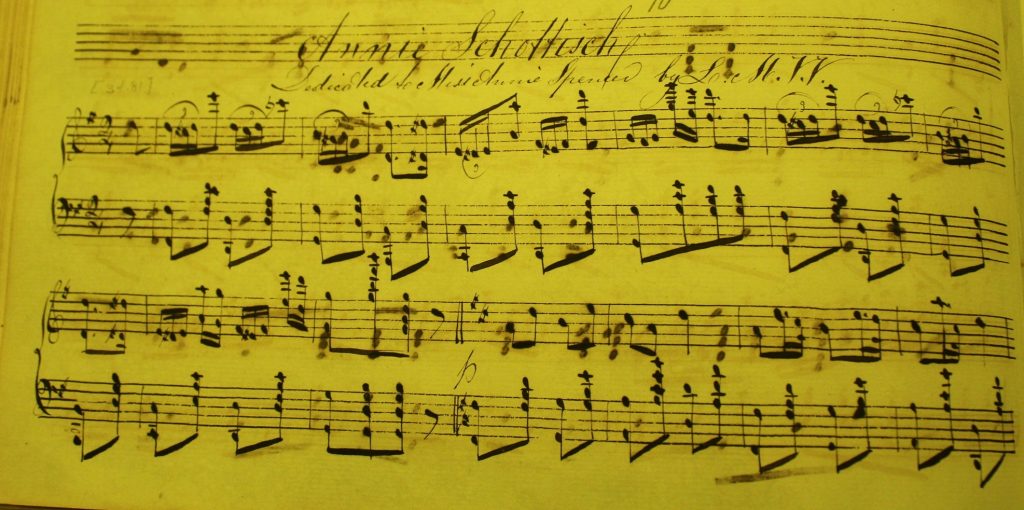
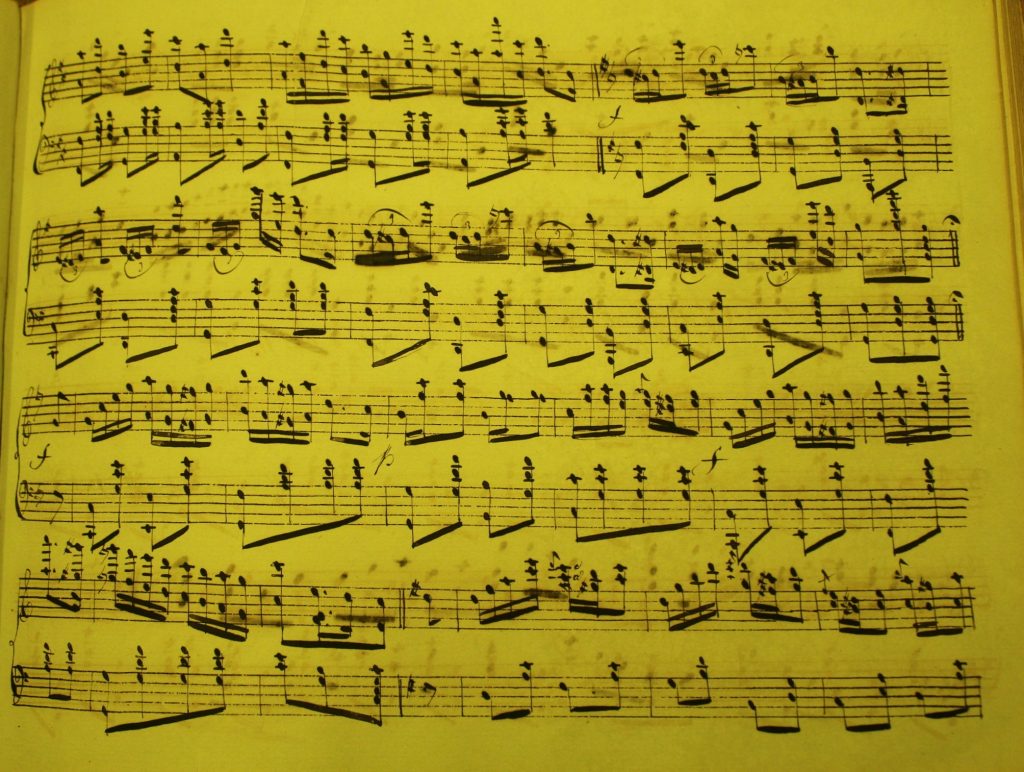
Gravesite
Lizette is buried in the Salem Congregation’s God’s Acre
Square: 01C
Row: 01
Grave: 04
Moravian Music Lecture: Music of the Van Vleck Sisters of Salem, NC
Music of the Van Vleck Sisters Nola Reed Knouse, lecturer. MMF Lunchtime Lecture; Episode 8; March 14, 2013; 12:15 p.m., Moravian Music Foundation, Archie K. Davis Center, Winston-Salem, NC
Hannah Polka composed by Lizette Van Vleck for piano
Hannah Polka ·
Performed by: Barbara Lister-Sink
Album: A Loving Home’s a Happy Home – 19th c. Moravian Parlor Music ℗ 2014 Anthology of Recorded Music, Inc. Released on: 2014-08-01
Mollie March composed by Lizette Van Vleck for piano
Mollie March
Performed by: Barbara Lister-Sink
Album: A Loving Home’s a Happy Home – 19th c. Moravian Parlor Music ℗ 2014 Anthology of Recorded Music, Inc. Released on: 2014-08-01
Simon Peter (1743 – 1819)
Simon Peter was born on April 2, 1743, in Herrendyk, Holland. On May 24, 1756, Simon was received into the Moravian church. In 1770, he received the call to serve the Paedagogium, located in Nazareth Hall in Pennsylvania. He arrived in Philadelphia on the 10th of November and several days later moved to Bethlehem, PA. He married Elisabeth Koehler in 1782; however, she passed away a few months later. He received the call to come to Wachovia, NC in 1784, where he met and wed Benigna Boehner. Within a few months of his arrival he had served the congregation of Bethania (ad interim) and then the congregation of Friedberg. After six years of service, he received the call back to Bethania, where Elisabeth passed away. His next wife was the widow Maria Beck, who he married in May 1793. On October 23, 1803, Simon once again found himself in the widowers state until his next marriage to Martha Edmonds on July 26, 1804. In 1811, he received the offer to serve at Salem (ad interim). During his life he composed works and anthems, but published few. He lived and served his remaining years at Salem, passing away on May 29, 1819.
Music Collection
Click here for a list of Simon Peter’s works located at the Moravian Music Foundation and other various libraries.
Click here to see more manuscript photos.
Click here to view his published works available for purchase.
O Anblick der mirs Herze bricht composed by Simon Peter
Violine Secondo Violino Primo
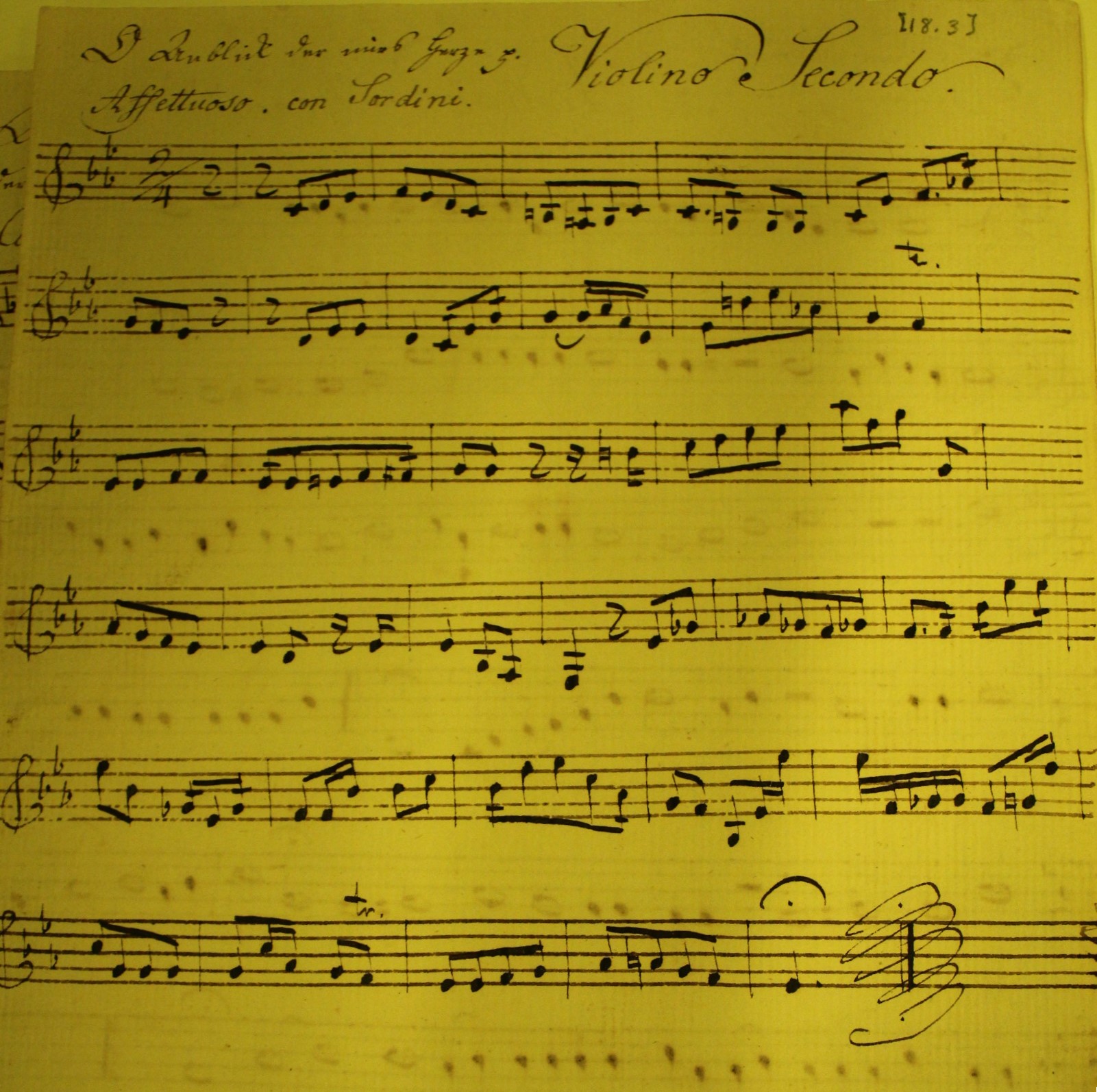
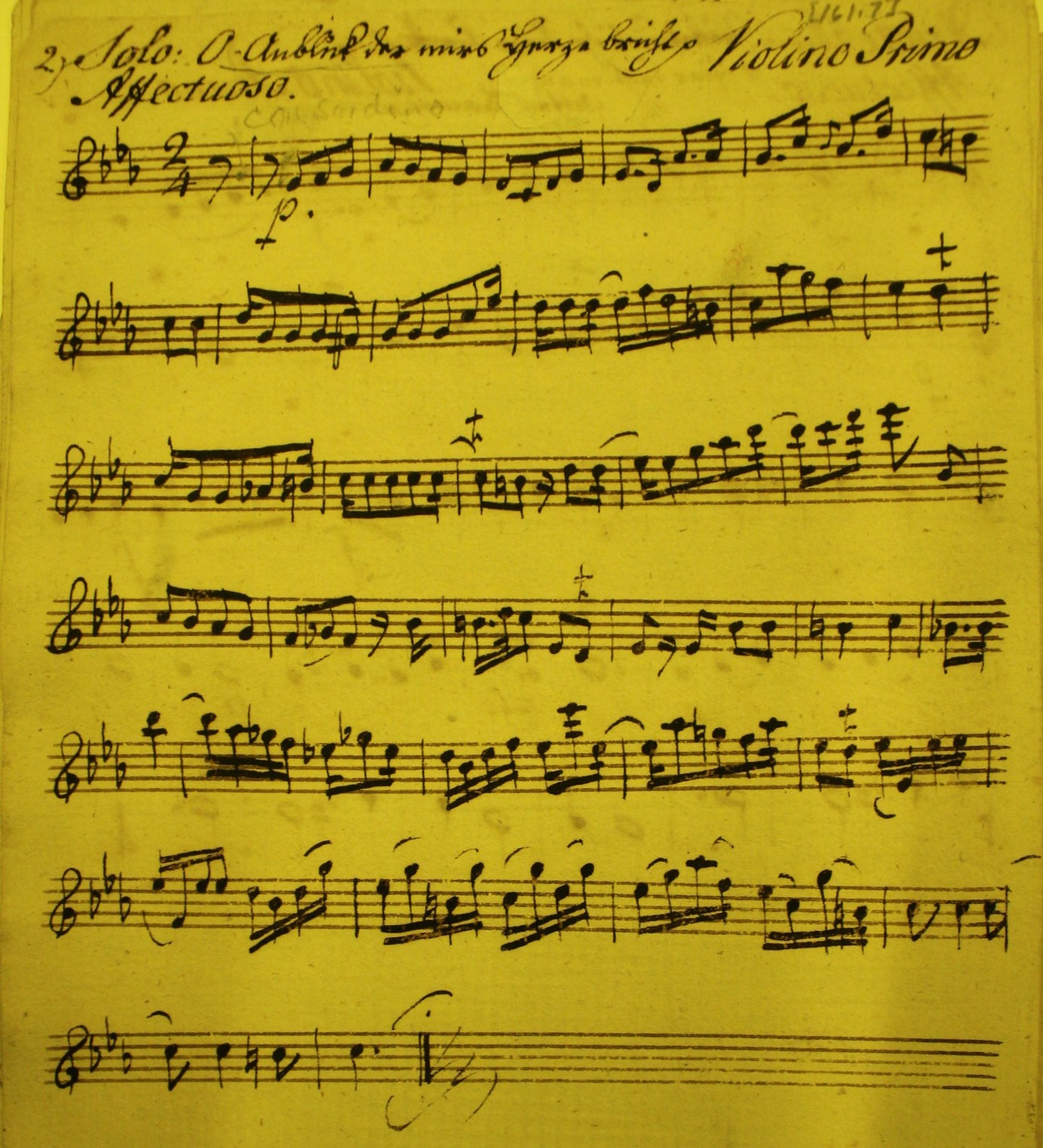
Gravesite
Simon is buried in the Salem Congregation’s God’s Acre
Square: 01J
Row: 02
Grave: 01
Ich will euch wie ein Thau seyn
Ich will euch wie ein Thau seyn ·
Composer: Simon Peter
Performers: Boston Baroque · Martin Pearlman
Album: Lost Music of Early America: Music of the Moravians ℗ 1998 Telarc International Corp., Distributed by Concord.
Siehe meine Knechte
Siehe meine Knechte ·
Composer: Simon Peter
Performers: Boston Baroque · Martin Pearlman · Sharon Baker
Album: Lost Music of Early America: Music of the Moravians ℗ 1998 Telarc International Corp., Distributed by Concord.
O Anblick, Der Mirs Herze Bricht
O Anblick, Der Mirs Herze Bricht ·
Composer: Simon Peter
Performers: Bach Festival Choir
Album: Sing O Ye Heavens ℗ 2007 Bach Festival Society Of Winter Park
Bernard Jacob Pfohl (1866 – 1960)
Bernard Jacob Pfohl was born on September 13, 1866, to Christian Thomas Pfohl and Margaret Siewers Pfohl. He graduated from Salem Boys School in 1881. At age 14, he began his career at the F. and H. Fries Cotton and Woolen Mills, where his father was in charge of the office. In 1901, he married Sarah Elizabeth Traeger. They would have three children together, who all became professional musicians. By age 32, he became the secretary of the Fries Manufacturing and Power Company. He remained the head of the office staff until February 1958, when he retired. His true legacy lies with the Salem Band. He began playing in the Salem Band as a young boy and became the leader of the band by age 17. He was made the Easter Band director in 1889, a band composed of multiple churches, which played together for the service. He led the band for fifty-six years and watched it grow to more than five hundred players, making it the largest organization of its kind in the world. He had a smaller segment of the band that would give concerts during the summer time in Salem square. For these concerts, he arranged several hymns, Moravian chorales, and secular pieces to be performed. Bernard passed away on December 5, 1960, at age 94.
Music Collection
Click here to view a list of the tunes and chorales arranged by Bernard Jacob Pfohl.
Rise Up, O Men of God! arr. by Bernard Jacob Pfohl
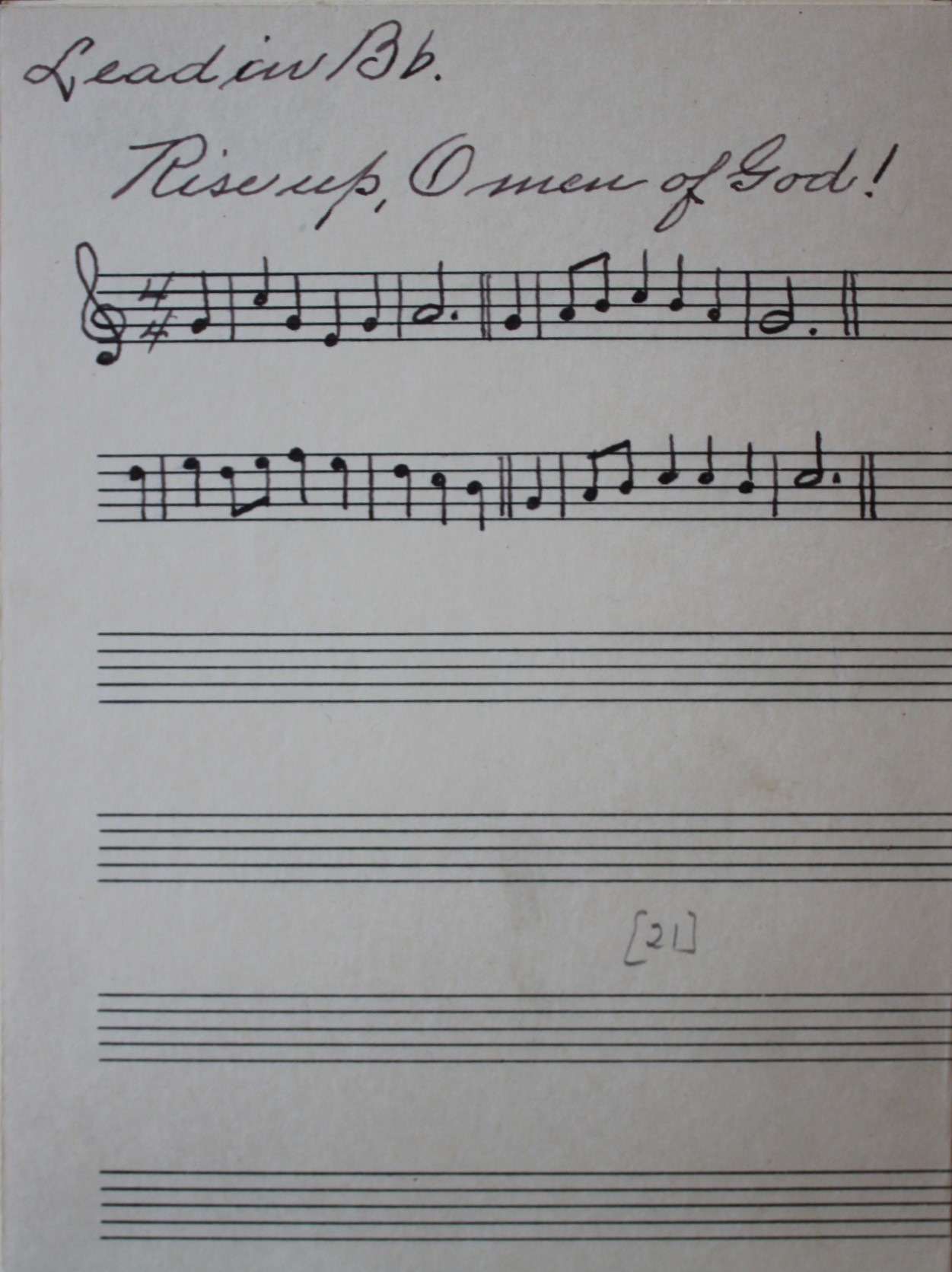
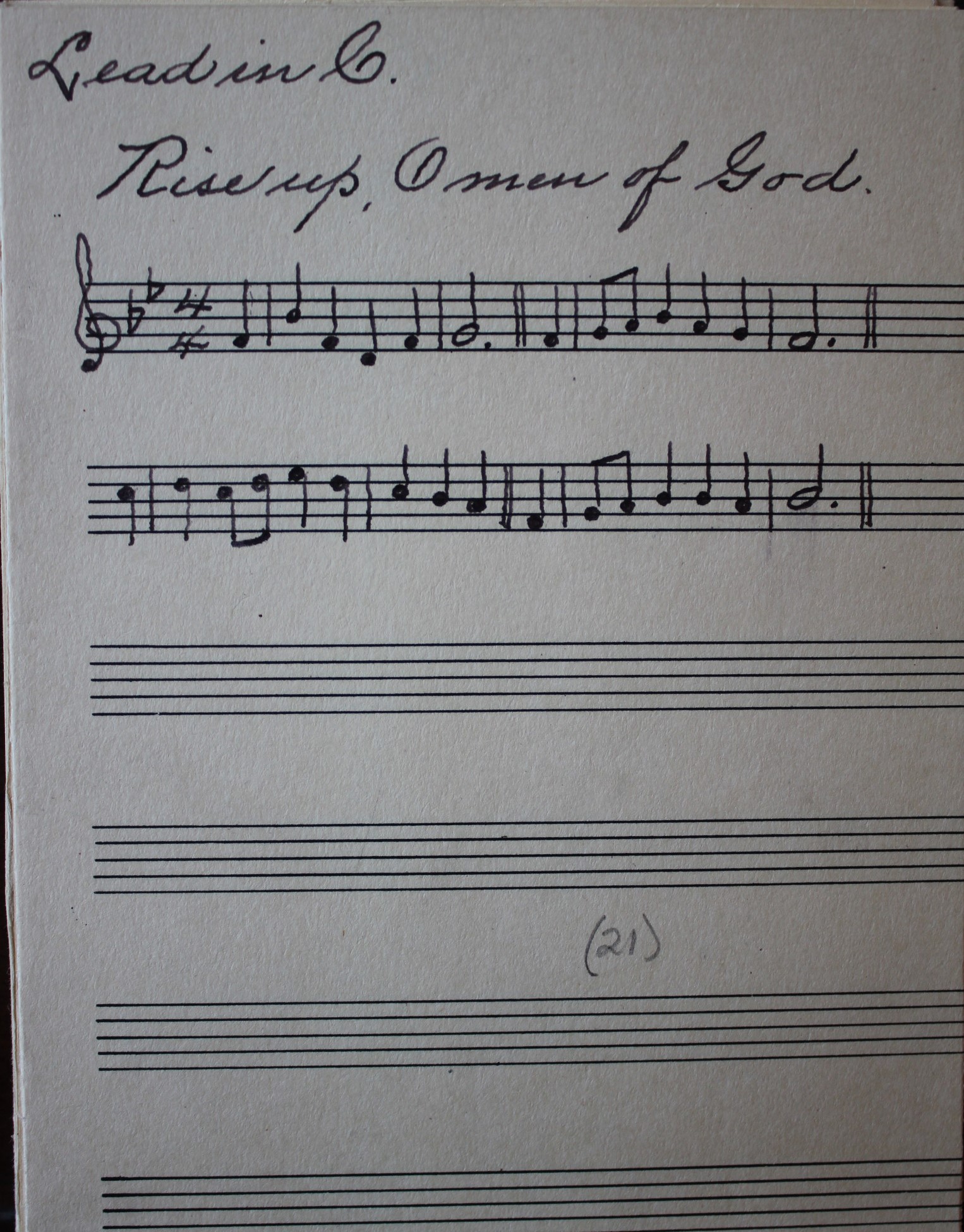
Gravesite
Bernard is buried in the Salem Congregation’s God’s Acre
Square: 03Q
Row: 04
Grave: 01
172 A, Thy Majesty How Vast It Is
172 A, Thy Majesty ·
Arranger: B.J. Pfohl
Performers: Giannini Brass
Album: Mit Freuden Zart (With Tender Joy) ℗ 2003 Moravian Music Foundation
195 A, God Reveals His Presence
195 A, God Reveals His Presence
Arranger: B.J. Pfohl
Performers: Giannini Brass
Album: Mit Freuden Zart (With Tender Joy) ℗ 2003 Moravian Music Foundation
Salem Congregation Band, 2023
An excerpt from the Salem Band performing on Easter Sunday 2023. This is an example of the Salem Band which B.J. Pfohl led from blank to blank.
Bessie Whittington Pfohl (1881 – 1971)
Bessie Whittington Pfohl was born on July 28, 1881, to James Madison Whittington and Betty Benbow Whittington. By divine providence, Bessie was born into a music loving family. Her first instrument was a reed organ, which was peddled by her mother as her legs were still too short to reach the pedals herself. Bessie attended Salem College, studying piano and later organ, eventually becoming an accomplished musician on both instruments. In 1901, Bessie married John Kenneth Pfohl, a minister of the Moravian church. For the 26 years that Rev. John Pfohl served as pastor of Salem’s Home Moravian Church, Bessie served 18 of them as the organist and choir director. During this time, she founded North Carolina’s first youth chorus. Bessie’s work with hymns and their preservation and promotion was unparalleled. She was a past president of the N.C. Federation of Music Clubs and was a representative to promote hymns for the Church Music Department of the National Federation of Music Clubs. She not only studied hymns, but she composed and arranged some as well. She recorded some of the Moravian chorales on the organ for the Voice of America Program in 1958, which was broadcast to nations behind the Iron Curtain at Christmas time. Bessie was devoted to her music, devoted to her family, and devoted to her faith. She passed away on November 23, 1971.
Music Collection
Bessie is known to have composed, but few of her works were put into print. Below is a sample of a communion chorale she composed titled Remembrance, which appears in the 1974 band book of the Southern Province.

Gravesite
Bessie is buried in the Salem Congregation’s God’s Acre
Square: 4EF
Row: 01
Grave: 01
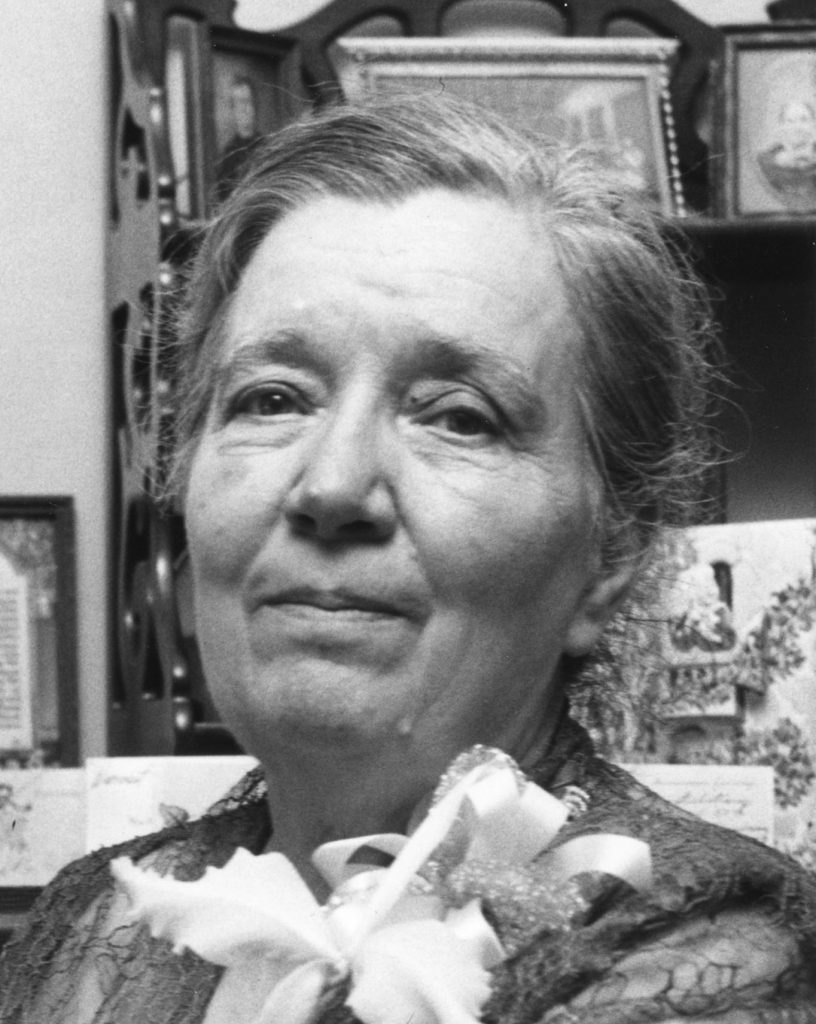
Photo courtesy of Forsyth County Public Library Photograph Collection
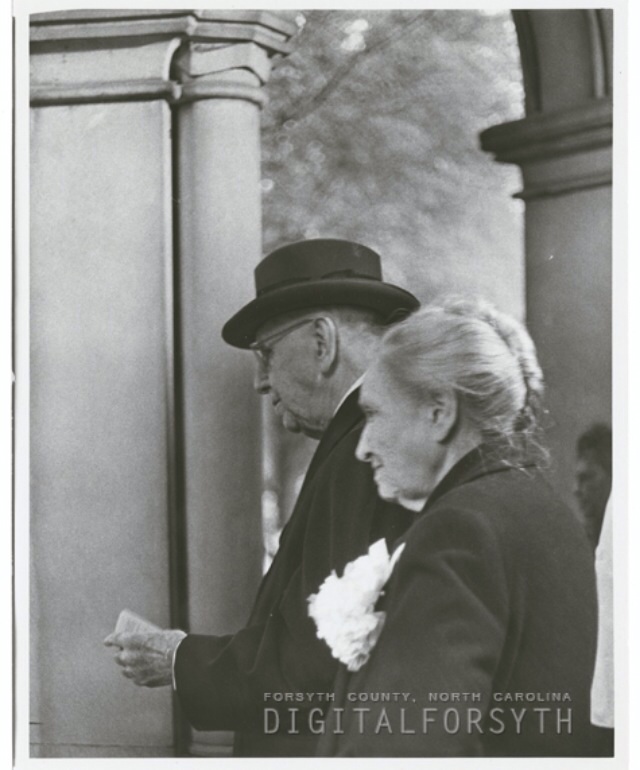
Photo courtesy of Forsyth County Public Library Photograph Collection
No recordings of Bessie Pfohl’s music are known to exist.
Amelia Van Vleck (1835 – 1929)
Amelia Van Vleck was born on October 18, 1835, to Rev. Carl Anton and Christiana Susan Kramsch Van Vleck. She was the youngest of four children, having two sisters and a brother. Following her father’s death in 1845, Amelia traveled with her mother, sisters, and brother to Salem, North Carolina. There she attended Salem College, an all female academy. At age 18, she became a teacher at the College, serving on the faculty for more than sixty years. Although she began her career teaching both French and piano, she quickly decided to focus all of her time and efforts on teaching music. She was known to be a brilliant musician and excellent composer, writing several pieces, including those for solo piano and voice with piano accompaniment. She was the organ accompanist at Salem’s Home Church for more than 50 years. Amelia was the last surviving member of her family. She passed away peacefully in her sleep on August 20, 1929.
Music Collection
Click here for a list of Amelia Van Vleck’s works located at the Moravian Music Foundation and other various libraries.
Click here to see more manuscript photos.
The Sky Lark composed by Amelia Van Vleck The Rainy Day composed by Amelia Van Vleck
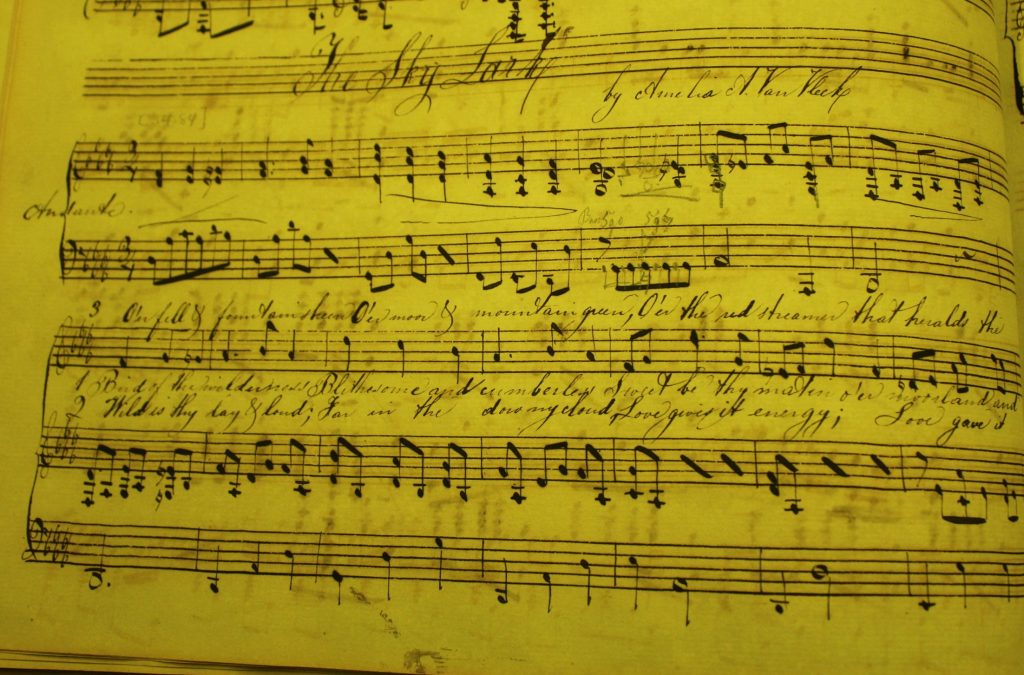
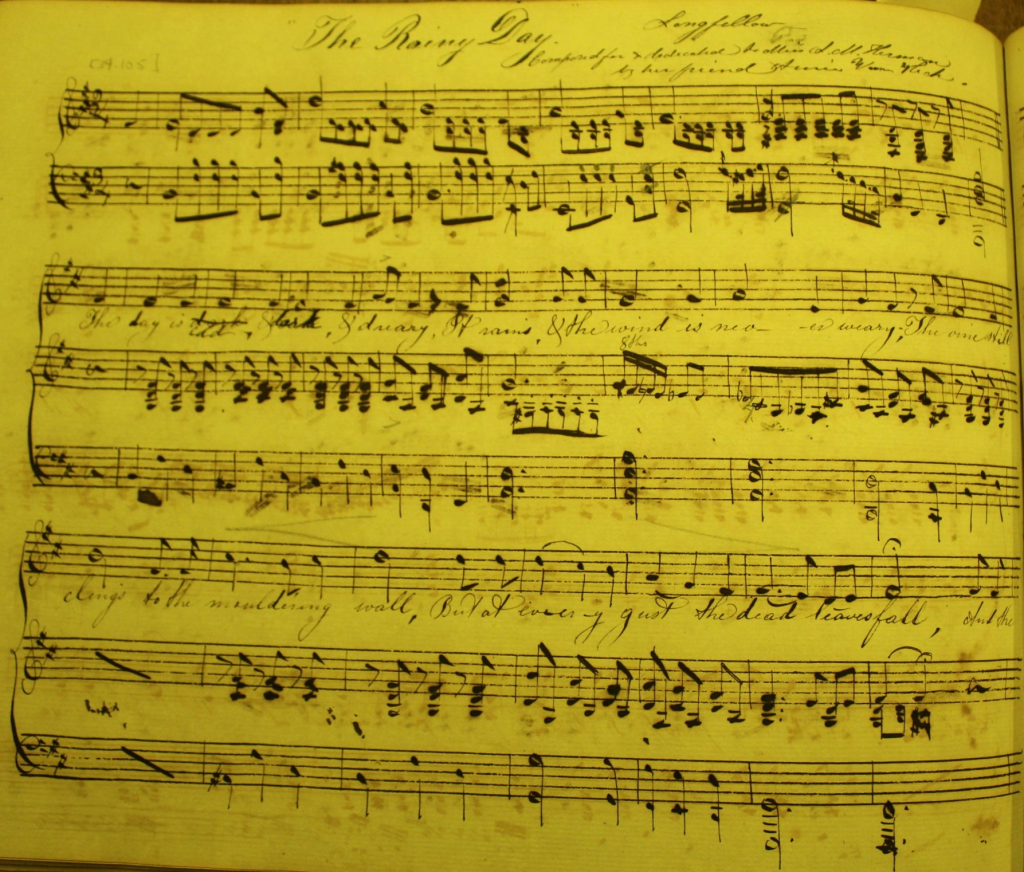
Gravesite
Amelia is buried in the Salem Congregation’s God’s Acre
Square: 02C
Row: 02
Grave: 01
Moravian Music Lecture: Music of the Van Vleck Sisters of Salem, NC
Music of the Van Vleck Sisters Nola Reed Knouse, lecturer. MMF Lunchtime Lecture; Episode 8; March 14, 2013; 12:15 p.m., Moravian Music Foundation, Archie K. Davis Center, Winston-Salem, NC
Waltz composed by Amelia Van Vleck for piano
Waltz · Amelia Adelaide Van Vleck · Performed by: Barbara Lister-Sink
Album: A Loving Home’s a Happy Home – 19th c. Moravian Parlor Music ℗ 2014 Anthology of Recorded Music, Inc. Released on: 2014-07-08
Irma Waltz composed by Amelia Van Vleck for piano
Irma Waltz · Amelia Adelaide Van Vleck · Performed by: Barbara Lister-Sink
Album: A Loving Home’s a Happy Home – 19th c. Moravian Parlor Music ℗ 2014 Anthology of Recorded Music, Inc. Released on: 2014-07-08
Carl Anthony Van Vleck (1794 – 1845)
Carl Anton (Charles Anthony) Van Vleck was born on November 4, 1794 to Jacob and Lisette Van Vleck. As a child he showed an interest in listening to educational lectures and music. Following his studies, he became a teacher at the Boys Boarding School of Nazareth and later at the Theological Institute in Nazareth. He served as the organist, performed public recitals, and composed works as well. In June 1823 he traveled to North Carolina, and on July 3rd he was married to Christiana Susanna Kramsch. He traveled to other congregations after that including Newport, RI, Bethlehem, PA, and Lancaster, PA. In 1845, he accepted an invitation to take over the administrative duties of a public school for children and older boys in Greenville, TN. On the way to Tennessee, Carl and his family stopped in the town of Salem where he delighted the community with several recitals. His time in Greenville was short as he passed not long after arriving. While in his sick-bed, he requested his family sing “verses for going home.” Whenever they became too sad to sing, he sang to himself with great emotion. He requested his body be brought back to Salem to be buried in God’s Acre. Carl went to be with the Lord on December 21, 1845.
Music Collection
Click here for a list of Carl Anthony Van Vleck’s works located at the Moravian Music Foundation and other various libraries.
Click here to see more manuscript photos.
The Autumn Evening composed by Carl Van Vleck
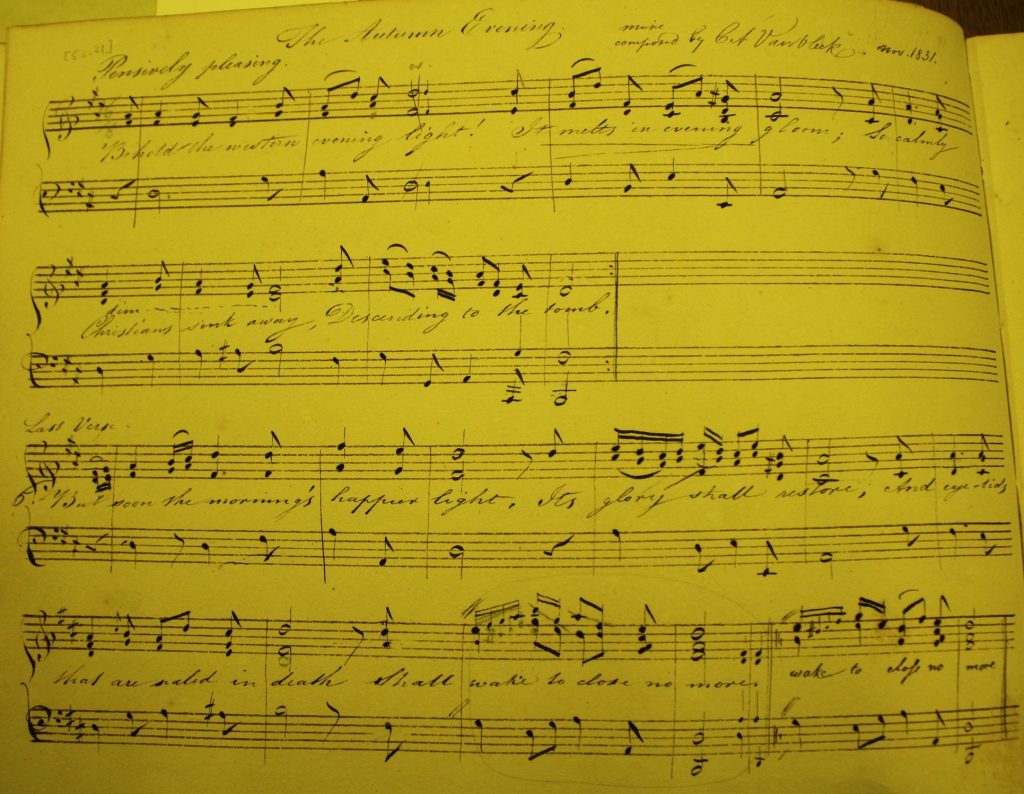
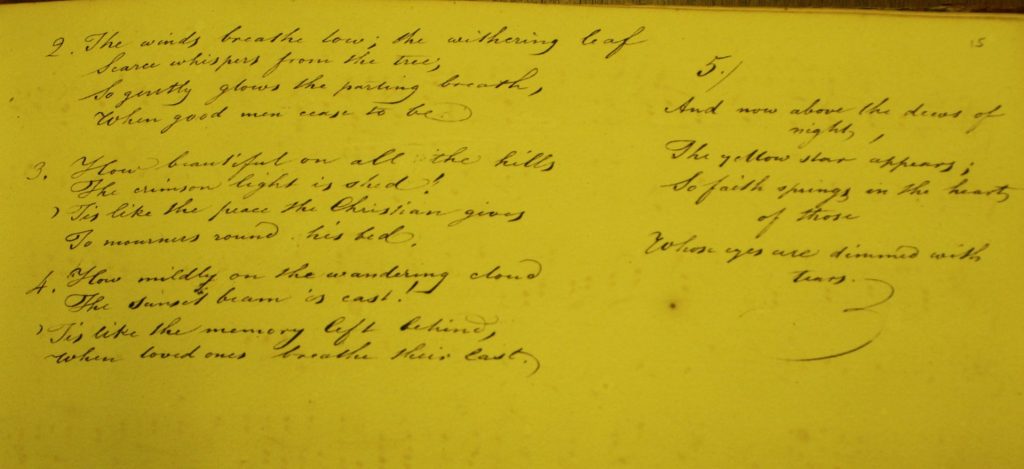
Gravesite
Carl (Charles) is buried in the Salem Congregation’s God’s Acre
Square: 01K
Row: 02
Grave: 03
No recordings of Carl Anthony Van Vleck’s music are known to exist.
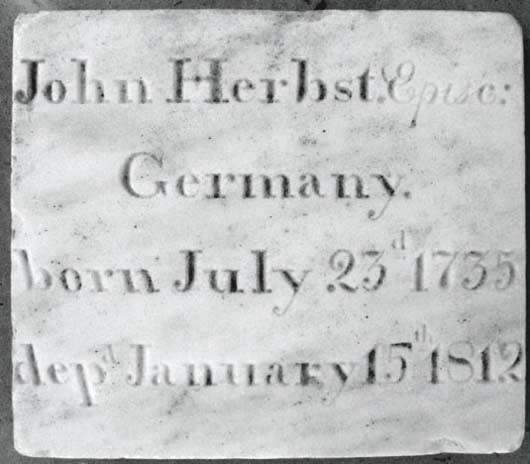

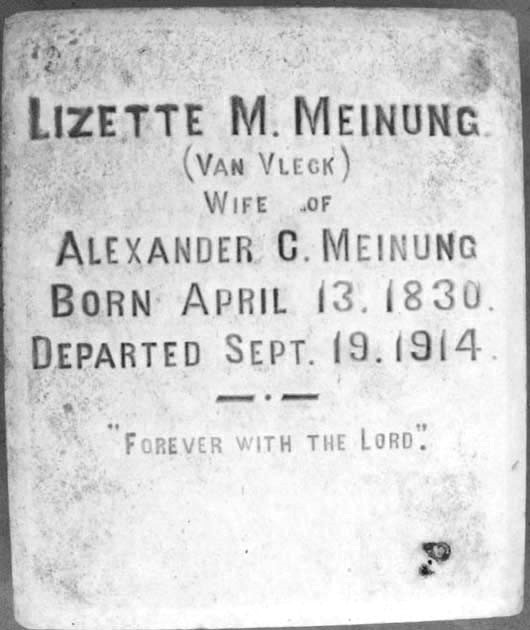

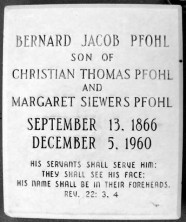
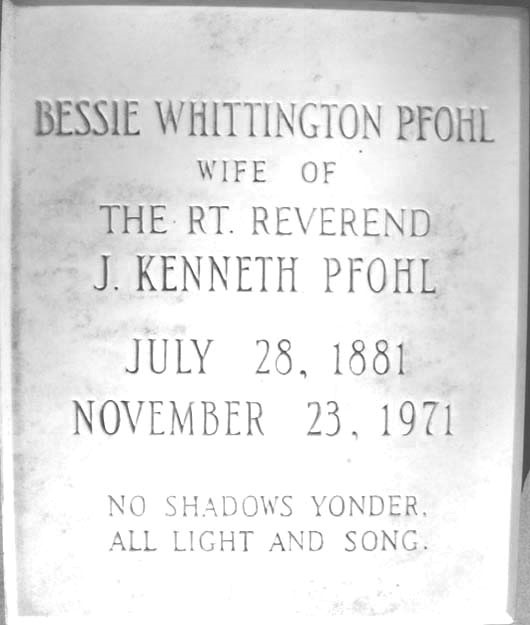
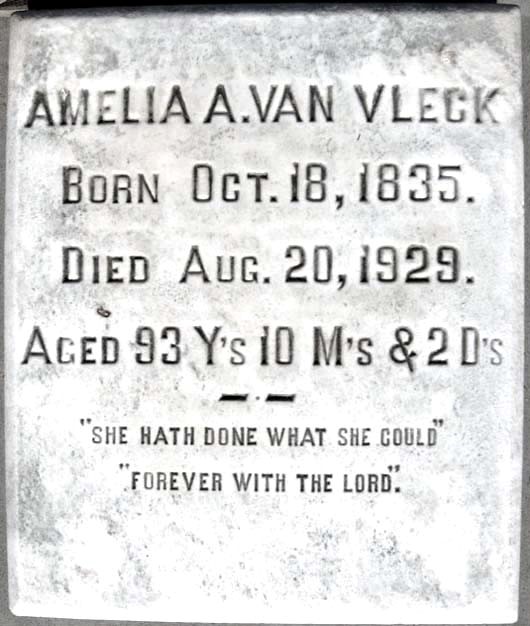

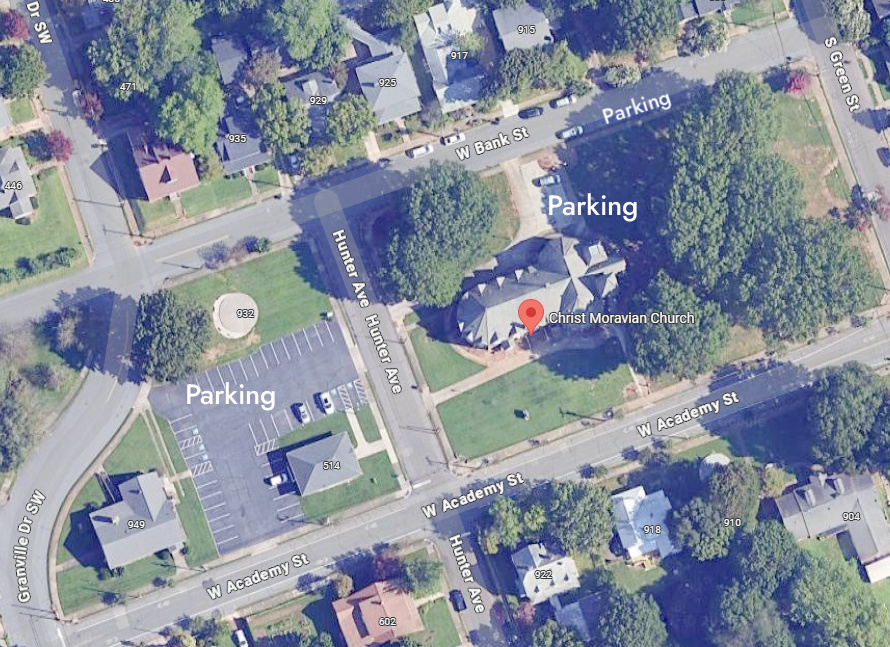
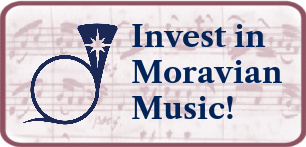

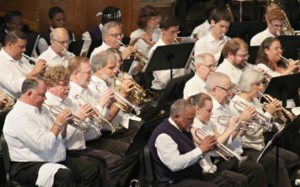
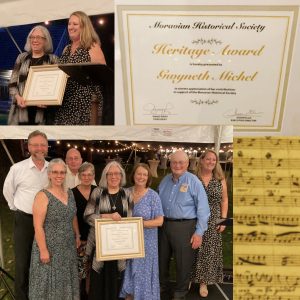
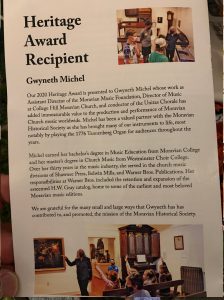
Leave a Reply